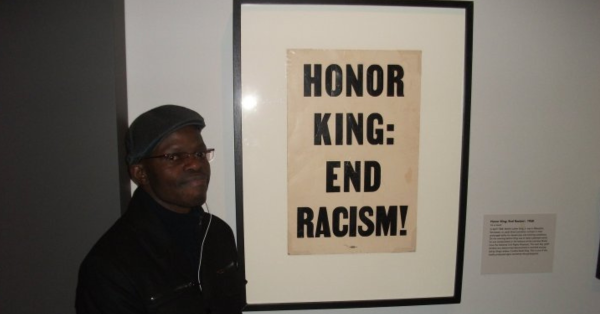 |
| Musaemura Zimunya |
Zimbabwe’s highly regarded author Musaemura Zimunya once wrote a newspaper article entitled “Is Marshall also a Poet?” but the artists’ lives and careers intersected in more enduring ways.
Zimunya is cousin to the classic Sungura icon in a poetic family tree that also features Chimurenga maverick Thomas Mapfumo and the late novelist and national hero, Cde Bernard Chidzero.
The rise-to-the-occassion writer and recent Zimbabwe International Book Fair Association (ZIBFA) chairperson has been erroneously credited for writing most of Marshall Munhumumwe’s songs, and giving them their poetic texture.
He opens up on the rumour, recalls how he and Munhumumwe got reunited by Biggie Tembo after his intellectual strivings in the UK, and shares other creative connections in a wide-ranging interview with Far South.
Although Zimunya and Munhumumwe were blood relations, they only got to meet as young adults. Munhumumwe had grown up in Chihota, his grandmother’ original home.
Munhumumwe’s grandmother had been married through the traditional method of “musengabere” (abduction) so she enlisted police intervention and relocated to Chihota with her children when the opportunity arose.
Zimunya recalls his earliest impression of Munhumumwe as a shy young man with whom he could not closely connect when they finally got to meet.
They met again when in 1975 when Munhumumwe was staying with Thomas Mapfumo’s family in National, and Zimunya was a UBA at the University of Rhodesia (now UZ).
“By then Marshall was already a drummer playing with the Tutenkamen Band at Mushandirapamwe Hotel. Still, I found him difficult to converse with because he was shy and withdrawn, to the point of being almost mysterious,” Zimunya said.
“Soon afterwards I left for my studies overseas. And although I came back in 1980, I did not get to see Marshall because he was no longer staying at the Mapfumo homestead,” he said.
“However, I followed him and the Four Brothers through their music on the radio and on TV. I was astounded to think he could sing because there had been no evidence of this in his earlier life as an artist. I was also surprised that he could present a charming face in his videos, given his introverted character.
“I got reunited with Marshall through Biggie Tembo, who had been following my literary reviews and occasional poetry readings on TV and I had already him met at Saratoga, under very odd circumstances.
“It was at Rufaro Stadium on a day Dynamos were playing Black Rhinos and I was somewhere in the middle of the Vietnam section of the eastern terraces.
“Biggie is the one that spotted me and invited me to sit with him. Then he introduced Marshall to me and then he said ‘Mukoma Marshall ava ndimukoma Musa Zimunya and Mukoma Musa ava ndiMukoma Marshall Munhumwe.’
“There and then Marshall and I, delighted and embarrassed to be introduced by a stranger, rose and hugged and shook the energies out of each other. Biggie could not understand until we explained.
The artists forgot about the football match, shared memories and exchanged contact details.
After that chance encounter, Zimunya became a regular reveller at the Four Brothers’ performances and would accompany Munhumumwe to collect his royalties at Gallo and, from there, to pay the latter’s bills, buy household gadgets and wander together in Highfield.
By then, Munhumumwe was less reserved and very popular in the “hood.”
“I have many fond memories of Marshall, but two moments stand out. One was when I invited him to go upon a trip to Mahusekwa during which I interviewed him for an article for Praise Zenenga’s Sunday Observer.
“I spent the whole day with him, interviewing him and discussing his artistic journey and creative methods while playing his music,” he said.
The other, rather emotive, occasion was during a break from performing at Kambuzuma Garden Party, when Munhumumwe told Zimunya that he had lost his appetite for everything, including life, love and art.
“It was a singularly chilling message. A few months after this Thomas Mapfumo called me to tell that Marshall had been admitted at Parirenyatwa Hospital,” Zimunya said.
“When I visited him I found him in the initial stages of a stroke. He could still speak. One member of his band was evening pushing for the doctors to release Marshall for the weekend’s show.
“No one had known that Marshall would never be the same again. After several days, he lost and was never to regain his speech faculty, let alone his melodious voice.
“My last memory of him is at his house, his body down to his bones, disabled and clinging onto my hands with tears rolling down his cheeks as his only means of expression, with only his son to attend to his needs,” he said.
Zimunya said Munhumumwe was once embarrassed for ignorantly Gutu legend M.A Hamutyinei’s lines on “Vimbai” without permission, but after admitting to copyright violation and settling compensation, never imported anyone else’s art into his own again.
“He became determined that he did not need to plunder anyone’s talents to climb to the top. What I also learned from him was that a lot of his music was inspired by voices on the street, what people said casually but was yet loaded with poetic and philosophical meaning relevant to all human beings and to society.
“He also showed me his song-book, where his pen literally carved every line and every stanza of every song painstakingly with rigorous clarity ‘in the early hours of the morning,’ in his own words,” Zimunya recalled.
“Marshall’s legacy stands as a bright beacon in the history of popular music in Zimbabwe and the outlying region. His lyrics are mature and poetically moving whether you listen to “Rudo Moto,” “Rwendo rweKudenga” or “Mudiwa Wangu,” while his voice has that unique brightness that carries beauty like a crystal wave,” he said.
Zimunya shot down rumours suggesting that he wrote songs for Munhumumwe: “The story is one of those flattering myths about oneself, but purely based on guesswork.”
Interestingly, there is a musical angle to Zimunya’s own development as a writer: “I was a singer in the Methodist Church choir and had already begun to lead quartets, trios and duos to entertain fellow pupils in primary school,” he said.
“I also had some compositions of my own at the time. That was my first experience as a composer. When I was a student at Chikore Secondary School we had a demanding culture of reading poetry and prose in Shona and English.”
Zimunya “threatens” to record his own songs one day – possibly something in the tenor of that YouTube video where a younger Zimunya, in an outlandish cap, performs an acapella piece to encouraging reception.
His first poem in English appeared in a school magazine called “Young Voice” when he was a second former. Thereafter his literature teacher took interest in his work and loaded him with books of poetry and fiction.
Zimunya received Special National Poetry Award for the best folio of five poems and had some of the poems published in Chirimo poetry magazine in 1970.
Poems from the same folio later appeared in South Africa’s New Coin, with Zimunya becoming a regular contributor to Two Tone and Rhodesian Poetry for the next ten years.
His first poetry anthology, “Zimbabwe Ruins” appeared in 1979, inspired by the “great leaders, architects and cultural visionaries” of the Great Zimbabwe.
The liberation war poetry anthology, “And Now the Poets Speak,” co-edited with Mudereri Kadhani in 1981, is a landmark feat in Zimunya’s career.
“We were looking for a cultural role in the revolution and were determined to fill a void in our literature, that of poetry focusing primarily on the war of liberation,” he told Literature Today.
“As it so happened, once back in the country in 1980, we were the first to do poetry readings on television in the newly independent Zimbabwe, but by then we had already sent out a call for submissions of poetry for the collection.
“The response was so overwhelming in terms of numbers of manuscripts, but also in the quality of hitherto unknown poets such as Chenjerai Hove, Carlos Chombo and Killian Mwanaka, Hopewell Seyaseya, Solomon Mahaka, Pathisa Nyathi, Lazarus Dokora, Vitalis Nyawaranda and Emmanuel Ngara,” he said.
Zimunya is The Herald’s first post-colonial columnist of note with his Scribe’s Scroll, subsequently adopted by several “public critics.” He has authored four poetry anthologies, co-edited two, published criticism and a short story collection.
Like several writers from his generation, Zimunya had running battles with the “Babylon system,” including a massive 1973 demonstration at the University of Rhodesia.
“We demonstrated in protest against sentiments that had been voiced by an Rhodesian Front backbencher called Simington who attacked black students at the university for being dirty, drunken and being a nuisance for the white students and challenging their legitimacy in the institution.
“I remember the next day seeing a picture of myself on the front page of The Herald epitomising the headline ‘University Students Run Riot’ or something to that effect.
157 students, including Zimunya, Dambudzo Marechera, Witness Mangwende, Henry Dzinotyiwei, Andrew Wutawunashe and Rino Zhuwarara were detained for 21 days during trials which culminated in various sentences ranging up to 9 months mandatory prison with hard labour without the option of a fine.


